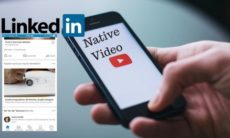The ideal testimonial is a story about how someone like you solved a problem like yours. But good video testimonials are rare, despite their obvious value in an era of digital selling. Why? Because however much they truly value a product or service, customers see little to gain in a borderline work-related project that requires the blessing of the legal department. And sales reps are reluctant to ask their customers to put in the work needed to make a good video testimonial.
“Based a true story”
Some of the best recent entertainment on film and TV has claimed to be ”based on a true story.” Viewers understand this to imply a mixture of truth, glossed-over details, and “composite” characters introduced to help to propel the story.
If you think about it, except for the composite characters, much the same could be said of the content B2B buyers value most highly when they are researching their needs.

You rarely encounter an interesting character with a compelling story in any of the content types shown in the chart. Dull storytelling is one reason why most of this content takes a good deal of patience and mental work to absorb.
Being real about business
You can use video to turn reports, case studies and similar content into stories people will listen to. All you need to do is
- develop composite characters with jobs like those in your target audience — maybe based on personas developed by the marketing team
- give these characters credible stories to relate
No one will mistake animated characters for “real” people, but a competent voice actor can make your character sound credible. If what they are saying rings true, people will listen.
This doesn’t require Disney-quality animation. Your character doesn’t need any dramatic moves or facial expressions. You can keep things moving along with a minimum of character animation and simple visual support like charts, illustrations, photos, and lists or bullet points.
You don’t need an elaborate environment — something resembling an in-person or online meeting works. Hearing real(ish) people, talking realistically, about real problems is a good way to learn something new about a product or service.







